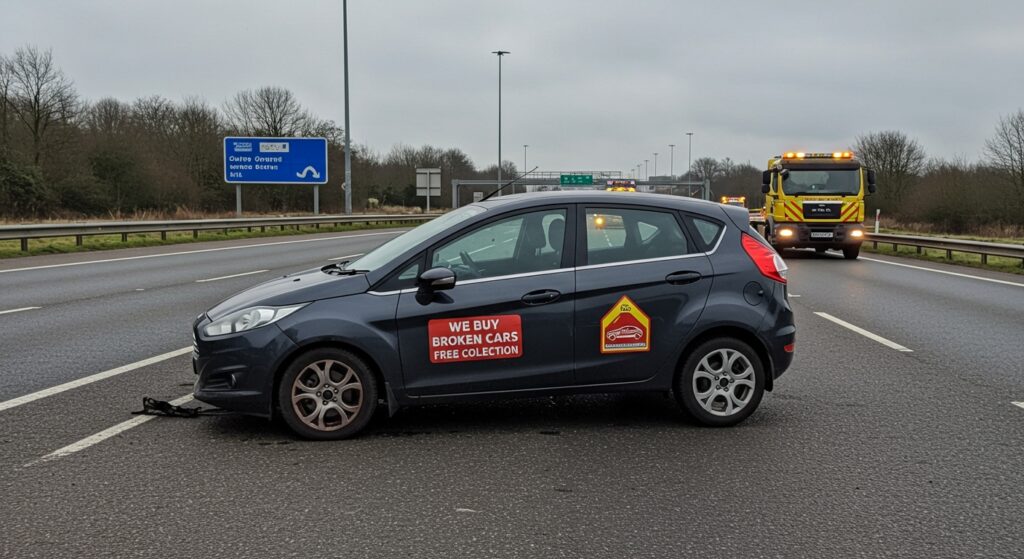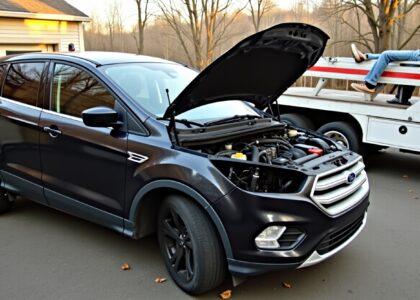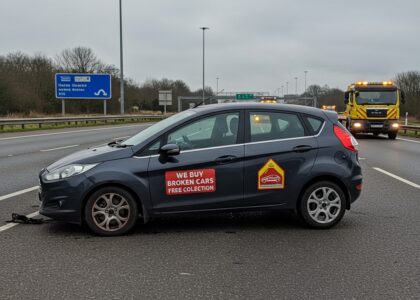When a Ford stops running and repairs cost more than its worth, selling it becomes the next best option. However, many owners wonder how buyers determine the value of a non-runner. The pricing process isn’t random — it’s based on condition, model, market demand, and the potential value of reusable parts. Understanding how buyers evaluate non-runners helps sellers set realistic expectations and make informed decisions when they decide to sell their vehicle.
Understanding the Meaning of a Non-Runner
A non-runner refers to a car that cannot start or function properly due to mechanical or electrical failure. Common causes include a seized engine, faulty transmission, or severe electrical faults. For Ford owners, models such as Focus, Fiesta, and EcoBoost can stop running for several reasons — from blown turbos to timing belt failure. Buyers consider these technical aspects before quoting a price, assessing whether the car can be repaired or is only valuable for parts or scrap.
Initial Evaluation and Visual Inspection
The first stage of pricing involves a thorough inspection. Buyers assess visible damage, missing parts, and the car’s overall structure. They check the exterior for corrosion, dents, and damage that could affect resale value. Internally, they examine the engine bay, fluids, tyres, and interior wear. Even if a car doesn’t start, a well-maintained body can increase its value because it provides usable components. Buyers also verify ownership documents and service history to ensure the car’s authenticity and traceability.
Assessing the Engine and Transmission Condition
For non-runners, the engine’s status is the most important factor in determining price. Buyers try to identify the cause of failure — whether it’s a blown head gasket, oil pump failure, or timing chain issue. A damaged engine reduces the car’s resale potential, while a repairable one can raise its worth. Transmission issues are also critical; automatic gearboxes are often more expensive to fix, so buyers factor that into their valuation. This technical assessment helps them decide if the vehicle should be scrapped or resold after reconditioning.
Market Value and Model Popularity
The model and demand in the used market also influence pricing. For instance, popular versions like the Ford Focus or Fiesta often retain more value because spare parts are in higher demand. Buyers research recent sales data, auction results, and part availability to calculate a fair offer. Seasonal demand also matters — during certain months, specific Ford parts or engines may fetch better prices. This market-based evaluation ensures that sellers receive a competitive but realistic offer.
Mileage, Registration, and Service History
Mileage plays a key role in determining value. A Ford with low mileage often holds more worth, even if it doesn’t run, because certain parts may have less wear. The year of registration also affects resale — newer models usually have higher-value components. Buyers review the vehicle’s service history to check for regular maintenance or previous issues. A well-documented record can slightly increase the final price, showing that the car has been cared for despite its non-running state.
Impact of EcoBoost Technology on Pricing
Ford’s EcoBoost engines are known for their turbocharged efficiency, but they can be costly to repair when major issues occur. Buyers who specialise in these models often evaluate turbo condition, fuel system integrity, and electronic control units before making an offer. If you’re planning to sell my EcoBoost, understanding these aspects can help you gauge its resale value accurately. Many non-running EcoBoost cars are purchased for parts because their components remain in high demand across the UK market.
Regional Demand and Buyer Expertise
Location also affects valuation. Buyers operating in major areas such as London or Manchester often offer competitive prices due to higher demand and access to recycling facilities. Regional buyers familiar with Ford’s mechanical systems can better estimate the potential profit from repairs or part sales. When you plan to sell my EcoBoost car London, it’s best to approach experts who deal regularly in Ford vehicles to ensure a quick and fair transaction.

Finding Reliable Ford Car Buyers
Not every buyer offers the same expertise or transparency. Reliable Ford EcoBoost car buyers UK use structured valuation systems and follow ethical recycling standards. They provide instant quotes based on photos or online forms, then confirm the final price after inspection. Trustworthy buyers handle collection and paperwork, ensuring a smooth process for both private and business sellers. This professional approach ensures the car’s parts or materials are reused responsibly.
The Best Way to Sell a Non-Runner
When you decide to Sell Ford EcoBoost UK, always research potential buyers, read reviews, and request a free valuation. Online platforms now make it simple to compare offers and choose one that aligns with your car’s condition and value. Avoid accepting unusually low offers without understanding how the price was calculated. A clear, informed approach ensures you receive a fair price, even if your Ford no longer runs.
For a quick, transparent, and reliable service, contact Cars Wanted UK — your trusted partner for selling non-running Fords with ease and confidence.





